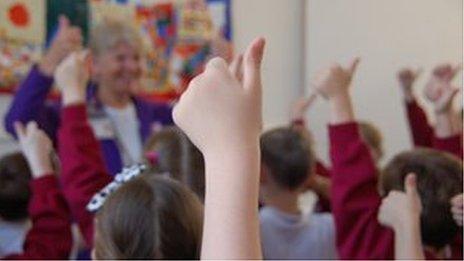Sexting among under-16s skyrocketing, says Labour
- Published
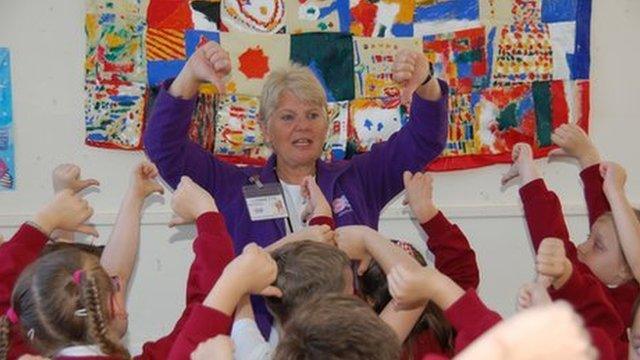
Age-appropriate sex education can help protect children from manipulation and exploitation, says Labour
Sexting among young people is "skyrocketing" but the government is "refusing to protect the smartphone generation", says Labour.
The party is committed to compulsory age-appropriate sex education in all of England's schools, shadow education secretary Lucy Powell has announced.
Labour wants to make personal, social, health and economic (PSHE) classes - which cover sex education - statutory.
The government has pledged to keep the subject's status under review.
Currently, sex-and-relationships education is compulsory from age 11 under the national curriculum, external - but this does not apply in academies, and the government announced last week that all schools must have plans in place to become academies by 2022.
Parents are also allowed to withdraw their children from parts of the subject.
Labour also points out the government's official guidance, external to all schools, including academies, on sex-and-relationships education has not been updated since 2000, "before the smartphone generation were even born".
Explicit messages
The party says police in England investigated more than 13 times as many cases of sexting among under-16s last year as in 2013, according to figures obtained through a Freedom of Information request.
Of 39 police forces in England, 18 responded to Labour's request for information.
In 2013, the 18 forces investigated 51 cases of under-16s "sending or receiving explicit messages and images on a mobile telecommunications device".
By last year, this figure had risen to 665.
Labour says these figures have ballooned since the emergence of smartphone apps such as Whatsapp and Snapchat at the end of the last decade.
There have also been reports of young teenagers lying about their age to access dating sites such as Tinder and Grindr.
Labour highlights "increasing evidence that access to new media and technology is creating new and unprecedented risks for young people".
"Youngsters are being pushed into adult territory well before they are ready," said Ms Powell.
"Far more needs to be done to equip young people with the resilience and knowledge they need to stay healthy and safe in relationships both off and online, and to spot the signs and feel confident to report manipulation and exploitation."
She said making PSHE compulsory in all state-funded schools in England would be "one of the first things Labour does in government".
PSHE pressure
Good PSHE teaching would also help protect children from radicalisation and substance abuse, and boost child mental health, the party argues.
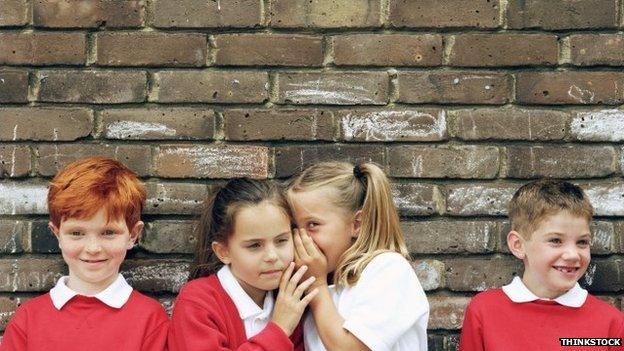
Sex and relationships education was a crucial part of preparing children for life, said Nicky Morgan in a letter to MPs
A Department for Education spokeswoman said high quality PSHE was "central" to its aim of providing all young people "with a curriculum for life that prepares them to succeed in modern Britain, and we expect all schools to teach it".
To support schools, the department had funded and produced a range of guidance and support on issues ranging from consent to internet safety, she said.
The government had asked leading head teachers to produce an action plan for improving PSHE, she addded.
Labour's intervention follows increasing pressure on the government to make sex-and-relationships education compulsory in state primaries and secondaries.
In January, the chairmen of four key House of Commons committee's wrote to Education Secretary Nicky Morgan, saying the subject was a "crucial part of preparing young people for life".
It could "help protect young people from abuse in many forms", argued the letter from the education, health, home affairs and business committees.
But Mrs Morgan said that while she agreed PSHE was crucial, making it statutory "would do little to tackle the most pressing problems with the subject".
She said the government would instead focus on improving the quality of PSHE teaching, following Ofsted's, external finding that 40% of it was less than good.
Lucy Emmerson, co-ordinator of the Sex Education Forum agreed the guidance on sex and relationships education was "woefully outdated" with "nothing to say on consent, sexting and pornography".
"The government's decision not to make SRE statutory in all schools undermines young people's right to healthy and safe relationships, and flies in the face of children, parents and MPs themselves who want this to be a guaranteed part of every pupils' education."
- Published11 February 2016
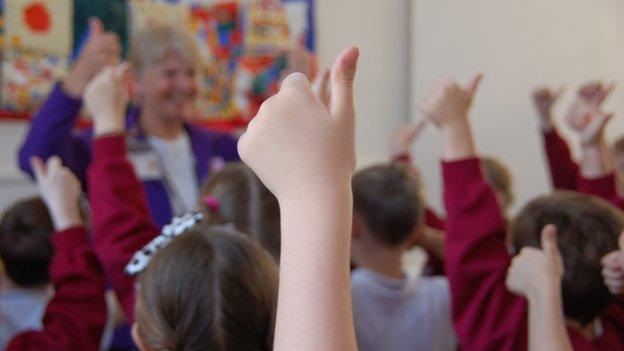
- Published8 January 2016
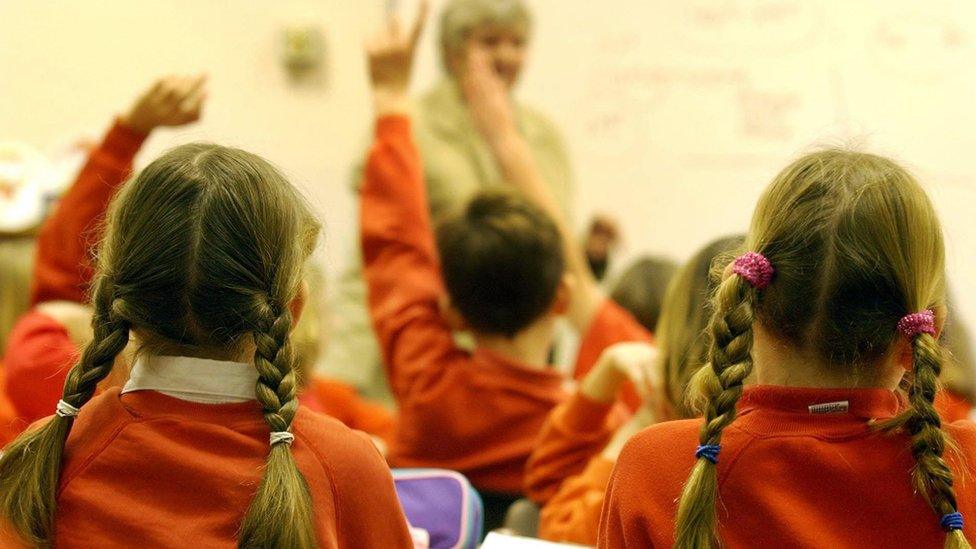
- Published6 September 2015
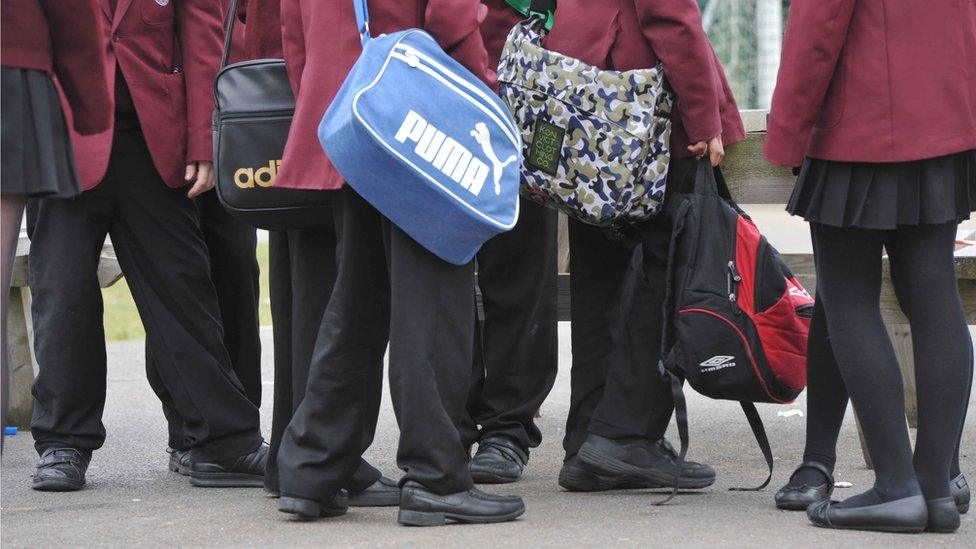
- Published17 July 2015
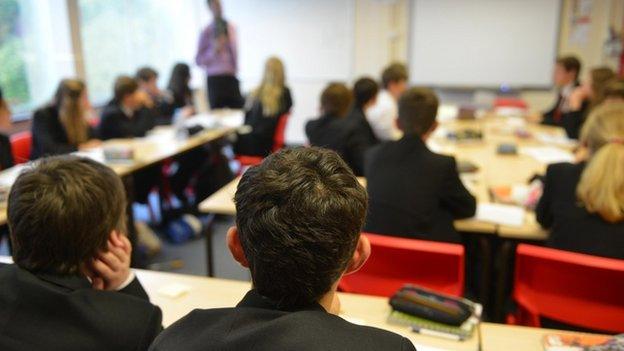
- Published17 February 2015

- Published20 October 2013
